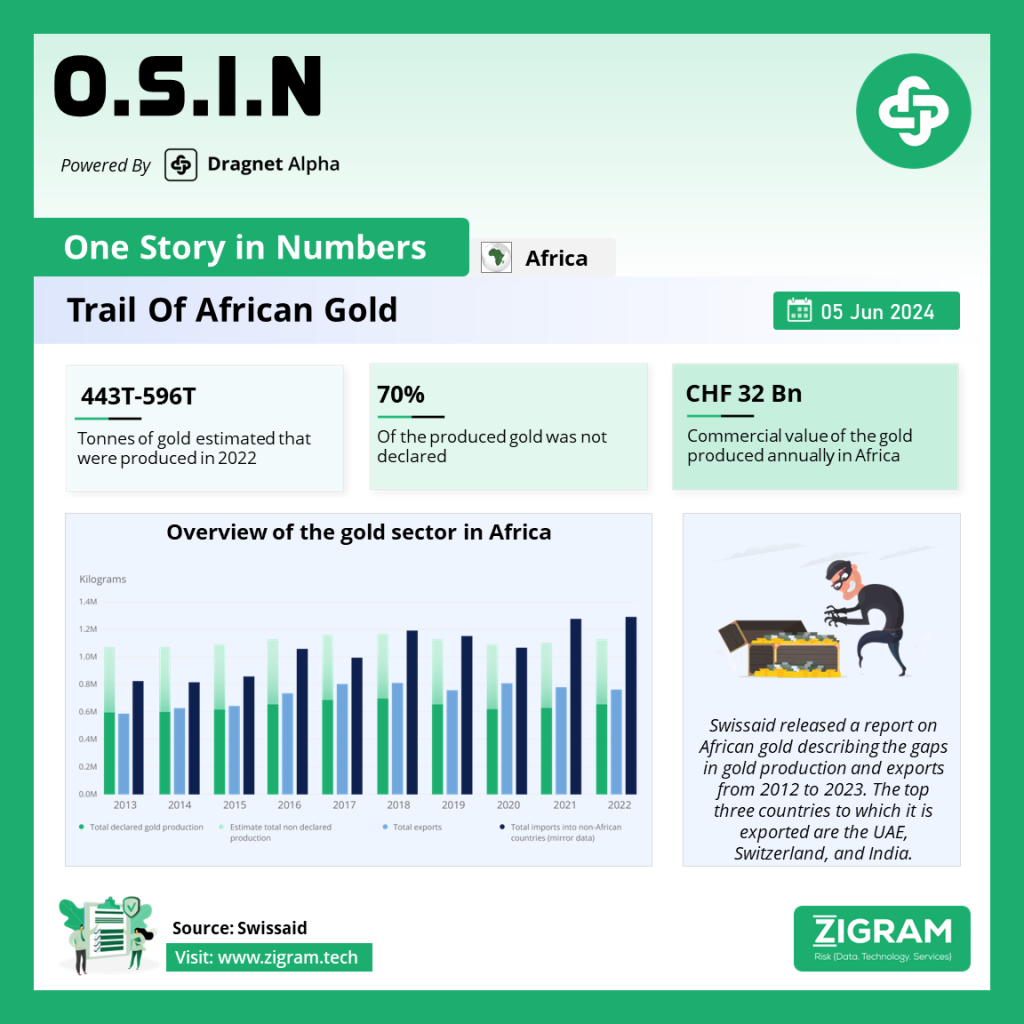Published Date:
A recent study released by SWISSAID has shed light on the significant scale of artisanal gold production and smuggling in Africa. The report reveals that between 321 and 474 tons of gold are produced annually without being declared, resulting in a substantial loss of revenue for numerous African nations. In 2022 alone, at least 435 tons of gold, worth approximately 31 billion USD, were smuggled from the continent.
The Scale of the Problem
The figures presented in the SWISSAID report are staggering. The undeclared production of gold in Africa, estimated to be between 321 and 474 tons annually, holds a commercial value of up to 32 billion CHF. This represents a significant portion—between 72% and 80%—of Africa’s total artisanal gold production. The study highlights that gold smuggling has more than doubled over the past decade, from 2012 to 2022.
The Gold Trade’s Murky Path
The journey of gold from extraction to its final use is complex and often shrouded in secrecy. After extraction, gold passes through multiple hands and crosses numerous borders, being sold, transported, processed, and reprocessed several times. This opaque process makes it challenging to trace and regulate the gold trade, which is exacerbated by systemic issues such as corruption, the financing of armed conflicts, and human rights violations.
Key Importing Nations
The report identifies the United Arab Emirates (UAE), Switzerland (CH), and India (IND) as the top three importers of gold from Africa over the last decade. These countries play a significant role in the global gold market, yet the lack of transparency in their supply chains contributes to the ongoing issues of smuggling and undeclared production.
Implications for African States
The undeclared production and smuggling of gold have severe implications for African nations. Gold is a critical source of revenue for many of these countries. The loss of billions of dollars in potential revenue hampers their economic development and deprives governments of funds needed for essential services. Moreover, the illegal gold trade is linked to the financing of armed groups, exacerbating conflicts and contributing to human rights abuses and environmental degradation.
Call to Action
Yvan Schulz, project manager at SWISSAID and co-author of the study, emphasizes the need for greater transparency and accountability in the gold trade. “Shedding light on the African gold trade is essential if governments and the industry are to face up to their responsibilities,” Schulz stated. The report calls for stronger measures to regulate the gold trade, enhance transparency, and combat the associated illicit activities.
The SWISSAID report highlights the urgent need to address the rampant gold smuggling and undeclared production in Africa. With billions of dollars at stake and the well-being of numerous African communities on the line, it is crucial for governments, industry stakeholders, and international organizations to take concerted action. By improving transparency and accountability, the gold trade can be reformed to ensure it benefits the people and economies of Africa rather than perpetuating cycles of corruption and conflict.
Read the full report here.
- #GoldSmuggling
- #Africa
- #ArtisanalMining
- #SWISSAID
- #GoldTrade
- #Transparency
- #EconomicImpact
- #HumanRights
- #ConflictFinance
- #EnvironmentalImpact
- #Accountability
- #GlobalTrade
- #Corruption
- #SustainableMining
- #EconomicDevelopment
